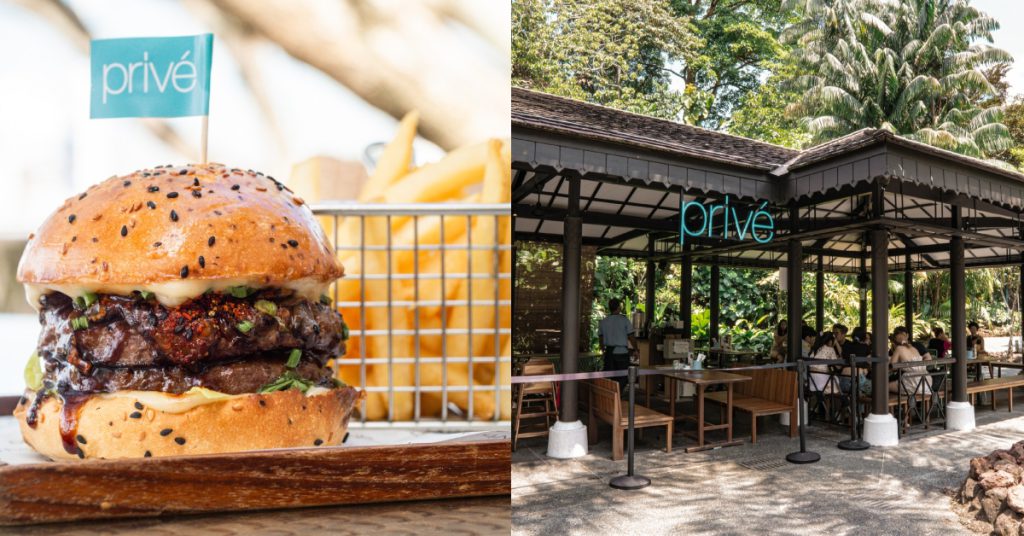Last Thursday (8 Jun), True Fitness gym members in Bangkok, Thailand were horrified to find that their gym had abruptly ceased its operations at its Exchange Tower outlet.
At its peak, there were 3 True Fitness outlets in Thailand; however, 1 of them closed down last November and the other, on 3 Jun this year.
The Exchange Tower outlet was the last one standing.
In a statement issued on its website the next day (9 Jun), the company revealed that the business was “no longer financially viable due to evolving market conditions” in Thailand.
However, the company has neglected to contact its members to offer refunds of compensation, and this spells bad news especially for its corporate clients, who were reported to have paid 200,000 baht (~S$8,126) and up for memberships for 3 to 5 years.
According to Khaosod English, trainers at the gym had also not been paid properly for months, with one revealing that he only received about 30% of his salary and was denied 8 months of commission.
Members also noted that nearing the closure, maintenance for the facilities stopped, and classes were cancelled as well.
With Thailand’s Office of Consumer Protection Board (ONCB) now offering help to those who are seeking to be compensated, the chain’s Thai office looks to be due to face legal woes ahead.

Said ONCB’s deputy secretary general Pikanest Tapuang to affected customers, “You can come in as a group or an individual. We will pore over your contract with the fitness chain and, if laws allow, sue the firm for you.”
But misery loves its company, and the very next day, its operations in Malaysia followed suit, with the similar announcement being put up on its Malaysia website on Saturday (10 Jun).
The reason for closure was also due to “evolving market conditions”.
According to Malaysian website Says, the closure came as a rude shock, given how True Fitness was still recruiting new members “up to 2 days before they shut down”.
While the company tried soothing sentiments by assuring that affected customers can continue with another centre, Chi Fitness, they are “unable to refund in cash the unused portions” of membership months and training sessions.
However, Chi Fitness has just come out denying that there was any agreement with True Fitness Malaysia to honour membership transfers.

Chi Fitness operations director Ashley Paulus clarified, though, that True Fitness Malaysia “was in the process of purchasing one-month membership vouchers from them”.
“They have asked to purchase 20,000 one-month membership passes from us. There is 20,000 worth of passes available and we have agreed to honour them over the period of two years,” she said.
Another California Fitness?

With such bad news happening to our neighbours overseas, it’s no surprise that members in Singapore (some 47,000 of them), albeit being reassured by the management, feel jittery as well.
In fact, many have drawn comparisons to the California Fitness fiasco that happened around the same time last year.
First opened in Singapore in 1998, the announcement that all California Fitness gyms would be closed with immediate notice came in the wee hours of Wednesday, 20 Jul, and the reason given was that the company didn’t not have adequate liquid resources to continue its operations.
And just like the situation this year, the news came right after the closing all its 12 outlets in Hong Kong.
Not The Same Legal Entity
Founded in Singapore in late 2004 by founder and group CEO Patrick Wee, the True Group manages not just the entities in Singapore, but those in China and Taiwan as well.
Stating on their website that they have “invested in excess of US$100 million regionally and now has more than 200,000 members across the region”, the Group has, in the midst of this chaos, come forward to assure that “the Singapore, Taiwan and China partnership is a totally different legal entity from Thailand”.
The Group also reiterated that they are just “a minority partner” in the Thailand operations.
It’s interesting to note, though, that a cached version of the ‘About Us’ page on its Thai website states that that the Group had “established its presence in five countries” – including the now defunct outlets in Malaysia and Thailand.

The same page on its Singapore website only states 3 countries – Singapore, Taiwan and China.
Regardless, members in Singapore might be able to rest easy, given that just a week ago, the (rather conflicting, nonetheless) news came that the Group is collaborating with a Chinese investor to establish 20 new entities in China over the next 3 years.
According to Deal Street Asia’s report at the end of May, the Chinese investor is Hong Kong-listed Tongfang Kontafarma, and the deal will include the acquisition of a 51.1% stake in the Group for “an aggregate cash consideration of $36.7 million (S$51.2 million)”.
The move is said to be integral in helping finance the expansion of the Group in China.
A spokesperson has also revealed to Channel NewsAsia that the Group is aiming to open “one to four clubs per year in each market” in Singapore and Taiwan.
From comments on social media though, not many seem to be buying into the statement.




Singapore Members Are Probably Safe…For Now
While it’s “business as usual” in Singapore’s 8 True Fitness gyms, the reality that haunts mega gyms is real.
One lesson that can be learnt is from the downfall of competitors that sell their services in the form of long term packages.
While having customers sign up for package deals means that the company stand to gain an influx of funds in the beginning, Dr Leng Ho Keat, Assistant Professor of Physical Education and Sports Science at the National Institute of Education (NIE) states that it makes companies think that they’re earning profits, when they might be setting themselves up for cashflow problems in the future.
“If you’re selling a lifetime membership to a 20-year-old, he can exercise there for free for the next 60 years of his life. So you need to be very prudent and calculate how much it costs to offer such packages.”
Another, is the need to create a sense of a ‘community’ among members – something that gym-goers appreciate.

In his interview with The Straits Times, Wee revealed that the increasing adoption of healthier lifestyles and fitness among the growing affluent population is something he feels the Group will benefit from – despite the rise of cheaper alternatives.
“If you become inspired to exercise through such exposure, it will help us attract customers to regular, dedicated classes at our own clubs.”
Regardless, even with the war chest of funds from its investor and Wee’s confidence in the survival of the Group, True Fitness cannot afford to rest on its laurels when it comes to the retention of its customers.
As with everything, time will tell – but it might be a good idea that you sign up for monthly gym packages from now on for good measure.














